Duodenal Ulcer
Duodenal ulcer is an ulcer that appears on the upper part of the small intestine that is called the duodenum. It can appear as a raw area or as an open sore. The normal passage of food is through the mouth and esophagus into the stomach.
When the food that came to the stomach passes to the duodenum, that produces mucus and chemicals that have the role to protect the tissues and surface from acid. The duodenum ulcer occurs when the acid damages the protection and breaks the lining of the duodenum.

The main factors contributing to this phenomenon are overeating and taking heavy foods or spicy food, but also a large quantity of alcohol, coffee, and smoking. However, it is possible to appear after using some drugs, food poisoning, and certain infections, but also because of emotional disorders, stress, and nervousness.
Natural Cures for Duodenal Ulcer
There are several things that we alone can do in order to reduce the symptoms of this condition. One of the natural remedies for duodenal ulcer is the treatment with bananas. Banana contains a compound that is for now unknown, and for which it has been proven to be effective in the fight against duodenal ulcers.
Banana neutralizes acidity in the stomach and reduces irritation of mucous tissues. It is recommended to take two bananas a day with a glass of milk.
Apple leaf is also one of the natural remedies that are good in the fight against duodenal ulcers. 15 grams of leaves should be soaked overnight with 250 milliliters of water. In the morning, the water is taken as a drink. This treatment should be repeated for a few weeks in order to eliminate pain and discomfort. This potion reduces inflammation and helps in healing ulcers.
Peptic ulcer treatment using Lime is important because citric acid along with mineral salts helps digestion. Cabbage is also a natural remedy that has great benefits in the fight against ulcers. It is very healthful in the form of juice that comes from pressing the raw cabbage. However, as this juice is very strong, it is best used in conjunction with the juice of carrot.
Drumstick is a tree that grows mostly in India and leaves of this tree are also used in the treatment of ulcers. Every day 10 grams of leaves mixed with half a cup of sour milk should be consumed.
Juices obtained by squeezing raw vegetables, cabbage, and carrot are very useful in the treatment of ulcers. Carrot juice may be taken alone or in combination with spinach or cucumber.
- Organization for the review involved the on and/or offline search for information from available literature using electronic data and scientific research information resources such as PubMed, Science Direct and Google scholar.
- In this review, fifteen ethno-medicinal plants used for the formulation of Enterica, Dyspepsia and NPK capsules have been discussed, presenting the description of the plants, composition and pharmacological activity.
- Many herbal medicines have been used globally for the treatment of PUD. An assessment by Ardalani and his colleagues identified about 279 plants from 89 families that may be used in the treatment of PUD.
- In this review, fifteen ethno-medicinal plants belonging to thirteen different families including Asteraceae and Meliaceae used for the formulation of Enterica, Dyspepsia and NPK capsules have been discussed. The parts of the plant most often used for the preparations were the leaves (44 %), followed by stem bark (22 %) and roots (19 %), the fruit (11 %), and the whole plant (4 %). Several compounds were isolated from the various plants.
- The most obtained in-vivo and in-vitro anti-ulcer model was ethanol induced (28.57 %), followed by aspirin induced and pylorus ligation anti-ulcer models (both having same percentages of 14.28 %), the indomethacin induced and acetic acid induced anti-ulcer models (both having same percentages of 17.14 %), the stress induced anti-ulcer model (5.71 %), and the NSAID (ibuprofen) induced anti-ulcer model (2.85 %).
- www.healthdirect.gov.au/duodenal-ulcer
- www.nhs.uk/conditions/stomach-ulcer/treatment/
- Photo courtesy of Nick Youngson via https://www.picpedia.org/medical-08/d/duodenal-ulcer.html


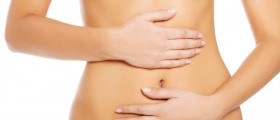
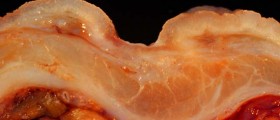

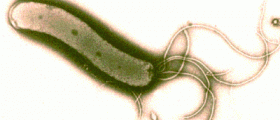
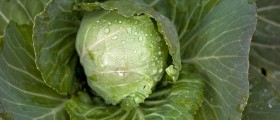

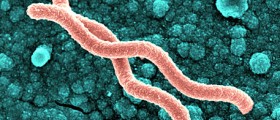
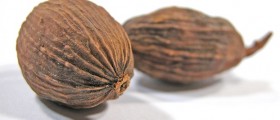
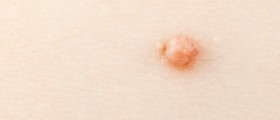

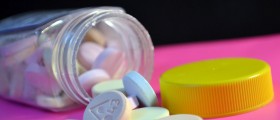
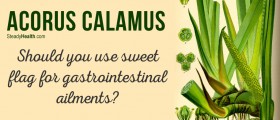
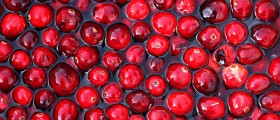
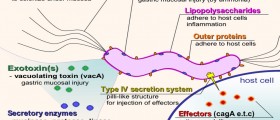
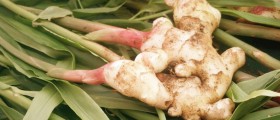
Your thoughts on this
Loading...